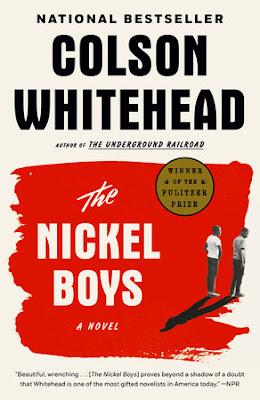Alexander, rumors only grow.On this date, four hundred and eighty years ago, July 28, 1540, Thomas Cromwell, Earl of Essex, Order of the Garter, Viceregent and Lord Privy Seal, was beheaded at the Tower of London by order of King Henry VIII for crimes of treason and heresy.
And we both know what we know.
Spoiler alert.
Hilary Mantel’s trilogy of novels on the life of Thomas Cromwell each conclude with a decapitation. Wolf Hall (2009) with that of Thomas More, Bring Up the Bodies (2012) with Anne Boleyn, and with the subject himself in The Mirror and the Light, which was released March 5 of this year.
My wife gifted me with the hardcover just as we all went into quarantine. It took four months to read half of it, and the past week to read the rest. I thought several times of putting it aside, but I have developed an attachment to the character of Cromwell, not only as Mantel has painted him but also in the performance by Mark Rylance in the six-part BBC adaptation of the first two novels.
 |
| Thomas Cromwell (Hans Holbein, 1532-33) |
Also, I have poor reading habits. I can take in maybe a page or two before bed and then I am spent. Summer vacation affords me the opportunity to sit and read, for hours. This past week I avoided work, both in my employment and my art. I set it aside. I vacationed. I went fishing with my son and I read this book. Once I could spend all of my time living in it, it came alive for me.
And it hurt. I knew how it was going to end, but I avoided delving into history to learn how or why beforehand. I even entertained the idea that he outlived the king and was put to death in the chaotic years that followed, but I was pretty sure there was no way that was how it actually happened. Henry VIII used people up, again and again, and it was Cromwell’s complicity in these acts which made it all but certain that he would eventually no longer be seen as useful to this monstrous monarch.
 |
| Rylance as Cromwell (Wolf Hall, 2015) |
To the author’s credit, however, she creates an alternative scenario inspired by true events. The ever-playful Tudor decides to surprise his betrothed before their appointed first meeting. This was a habit of his, as illustrated in Shakespeare’s All Is True, putting on disguises to the delight of the ladies long past the age when such behavior was deemed appropriate.
 |
| The best way to read. |
Cromwell’s downfall as depicted is remarkable, he never loses his wit (nor Mantel hers, the author’s sense of humor is a particular delight) and his death handled in a manner in keeping with my own recent philosophical imaginings on the subject. It broke my heart.
What should I read next?










